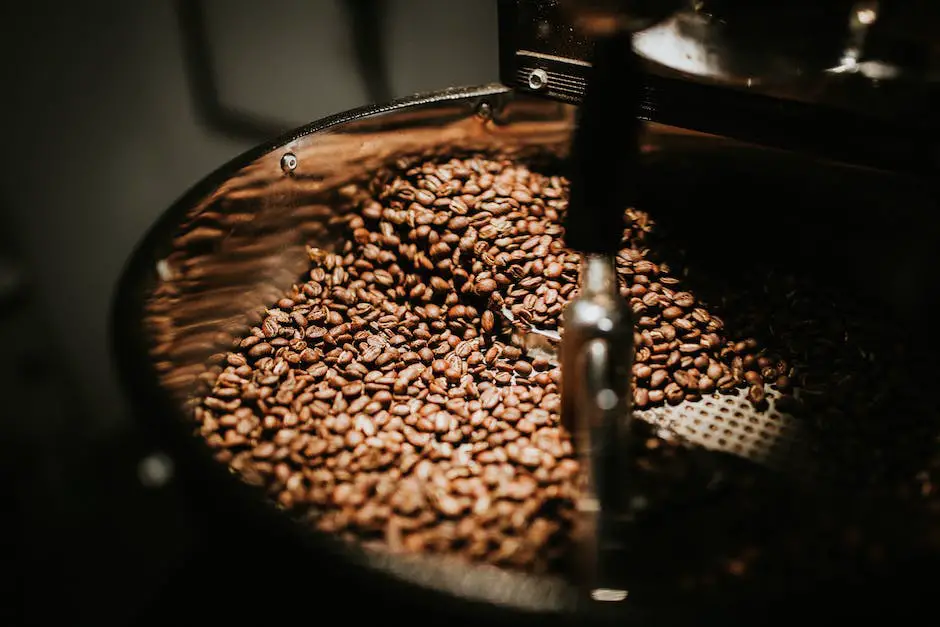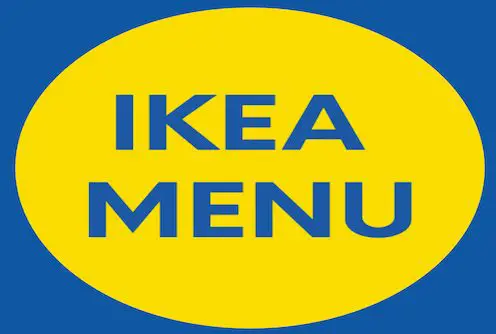Costco, a household name in wholesale retail, has carved a niche for itself in the global coffee bean market. This immersive exploration delves into the intricacies of the competitive landscapes, diverse consumer preferences, and unique selling propositions driving the growth of Costco’s coffee bean business. Furthermore, it attempts an exhaustive inspection of Costco’s innovative supply chain and production methods, that uphold their standing in the cutthroat market. Against a backdrop of a detailed financial viability analysis and future forecast, the aim is to provide readers with a well-rounded understanding of the complexities and triumphs of Costco’s coffee venture.
Dynamics of the Costco Coffee Bean Market
Unveiling Market Trends Behind Costco Coffee Beans’ Soaring Popularity
Brimming with notable business insights and remarkable marketing strategies, Costco Wholesale has carved a niche for itself in the fiercely competitive retail industry. A product that truly stands out in their diverse product offering is Costco coffee beans. Its dominance doesn’t merely lie in affordable pricing; it involves multiple factors that cater to dynamic customer expectations. Identifying the market trends and key driving forces stimulating this popularity will shed light on Costco’s success story.
Costco coffee beans’ ascent rides on the rising trend of at-home coffee consumption. The last couple of years have seen a seismic shift in consumer behavior, pushing for a home-brewed cup of joe, thanks to the pandemic. With remote work becoming the norm, the coffee shop culture is now transferred to kitchen counters. Costco Wholesale smartly capitalized on this trend, offering a variety of quality, affordable coffee beans that is sure to make your homebrew taste like your go-to specialty coffee shop pour.
Moreover, society’s growing consciousness about sustainable products is another factor setting the stage for Costco coffee beans’ rising popularity. The retailer ensures that its coffee beans maintain the Rainforest Alliance Certification, certifying that products are sustainably produced and sourced. By this smart move, Costco effectively addresses the demand bubbling from the conscious consumer, tipping the popularity scales in their favor.
Additionally, on the supply side, the company’s diverse sourcing approach caters to the increasingly sophisticated palette of the modern coffee consumer. Costco’s Kirkland Signature line of coffee beans is a treat to the olfactory sense – from the Sumatran dark roast with earthy undertones and full-bodied Colombian coffee, to the crowd-favorite Rwandan coffee beans with notes of red fruit and chocolate. With this masterstroke, the retail giant has successfully bought variety, an element previously unique to local roasters, to their mainstream consumers.
Another critical market trend is digital commerce. The wave of online buying behavior has been steadily growing, and Costco is harnessing this trend strategically. Their online store offers easy availability and accessibility of their coffee beans varieties, earning them valuable brownie points with convenience-seeking consumers.
Lastly, Costco still wins the pricing game. Their value and affordability continue to swim against the current of rising coffee prices globally. Providing this triple threat of quality, sustainability, and affordable pricing, Costco captures a significant share of the conscious, coffee-loving market.
To conclude, an acute understanding of macro-market trends has propelled Costco’s coffee beans to the peak of popularity. Adroitly navigating the customer’s evolving preferences and demanding expectations, Costco proves that astute business sense coupled with a pulse on the market can turn mainstream products into rousing success stories. Understanding these trends and adapting to them can be a guide for businesses seeking to top the popularity charts in their respective industries.

Production and Supply Chain Innovation
In the expansive realm of Costco’s all-conquering supply chain management, a deeper look unveils a remarkable edge that stems from its innovative approach to sourcing and distributing coffee.
The combination of strategic sourcing, proprietary branding, and a robust distribution network, has proven unshakeable, giving Costco a competive edge in a crowded marketplace.
Fair Trade Certification is at the root of Costco’s strategic sourcing. This empowers the organization to secure premium coffee beans from around the world while positively impacting the lives of the farmers and communities involved. With this ethical sourcing, Costco guarantees its consumers are drinking coffee that’s not only of highest quality, but also makes a difference – a winning combination in today’s conscientious market.
In addition, Costco’s innovative private labeling, in the form of Kirkland Signature ensures loyal members enjoy a fusion of outstanding quality and unbeatable value. By engaging directly with roasters, the brand ensures members are always met with top-tier, carefully selected coffee beans at prices that others find hard to match. The savviness of this strategy is palpable, with Kirkland Signature’s coffee quickly becoming a household name and a higher percentage shelf space being devoted to it.
Further bolstering its competitive edge is Costco’s robust distribution network. With warehouses strategically located across the globe, the organization maintains a swift stock turnover while minimizing storage costs. Coffee beans are therefore frequently newer, fresher, and less likely to have sat on warehouse shelves for an extended period. In an industry where freshness is currency, this gives Costco yet another tangible advantage.
Moreover, Costco’s commitment to digital transformation has marked its success in the e-commerce domain as well. The mobile-friendly and user-intuitive online system accepts bulk orders of coffee beans, which are efficiently delivered reducing overhead costs and driving sales.
In a nutshell, Costco’s innovative edge in the coffee industry is a result of blending ethical sourcing with proprietary branding and a sound distribution network. With such robust strategies in place, the path ahead for Costco is infused with the aroma of success. The world of coffee has become a pivotal cog in the Costco business model, and with these innovations front and center, there is little doubt about their market prowess and competitive edge.

Financial Performance and Future Forecast
One must also consider the financial implications of this business strategy from a granular level.
Selling coffee beans at Costco could contribute significantly to the wholesale giant’s bottom line due to the ever-increasing demand for quality and affordable coffee.
The market for coffee beans is projected to keep growing, with its value expected to cross $30.2 billion by 2024.
Costco’s bulk sales approach is a boon in this market. When customers buy in large quantities, it means more revenue per sale and lower transaction costs. Additionally, the predictable demand volume allows Costco to leverage economies of scale when procuring its coffee beans.
Fair Trade Certification facilitates Costco’s gaining of customer trust and brand loyalty. It appeals to the growing segment of consumers who are discerning about the products they purchase and their impacts on the planet and its people. Consequently, this could drive sales volumes and increase profit margins.
Costco’s symbiotic relationship with farmers and the company’s commitment to ethical sourcing likewise bolsters financial performance by securing constant supply. It assuages volatile commodity prices, safeguards against supply disruptions, and ensures product quality—all crucial aspects for the sustainability of profit margins.
Additionally, private labeling allows Costco to capture the entire retail markup, thus boosting profitability. With the Kirkland Signature brand widely recognized for providing top-notch quality at unbeatable prices, consumers are more inclined to opt for these products over branded ones, so the risk of cannibalization is relatively low.
The robust distribution network of Costco decreases costs, which has a positive effect on the financial aspects. Swift stock turnarounds and minimized storage costs result in significant savings, which in part are passed onto the customer, making the product more competitive. This, in turn, can drive sales volumes and secure market share.
From a digital commerce angle, the efficiency and user-intuitiveness of Costco’s online system encourage bulk purchasing of coffee beans, further driving revenues. A strong eCommerce approach allows the company to tap into a wider audience and potential market, driving forth profits.
The business strategy employed by Costco is forward-thinking and dynamic. Incorporating ethical practices, leveraging advanced digital capabilities, optimizing supply chain management, and maintaining the quality and value equation in its favor is no easy feat. However, Costco has managed to blend these elements in the right proportion for a competitive edge.
As for the future, the trajectory certainly appears promising for Costco in the coffee industry. With projected increases in coffee consumption, particularly specialty coffee, and consumers’ growing emphasis on sustainability, Costco seems well-poised to continue its market success. The company’s strategic maneuvers should allow it to keep generating healthy returns while satisfying the evolving preferences of the coffee-loving community.

Strategizing for Market Share Capture
Next-Level Partnering for Business Optimization
Partnering with local, independent coffeehouses can serve as a thriving avenue for increasing profits. Striking a balance between corporate strategy and local appeal, these community hubs offer a prime retail space for Costco’s coffee beans. In return, these local businesses gain access to premium, ethically-sourced products to enrich their offerings.
Leveraging Consumer Data
Capitalizing on consumer data is key to understanding the nuances of customer behavior. Tapping into buying patterns, preferences, and demographic details helps businesses align their sales strategy accordingly. A keen focus on data analytics, particularly regarding online and in-store purchases at Costco, can help businesses anticipate demand and effectively adjust their inventory, leading to reduced storage and waste costs.
Expanding Consumer Education
Enriching consumers’ knowledge about Costco’s coffee – its sources, its quality, its roasting process – can ramp up its appeal. More than just an element of transparency, these concerted efforts can foster brand loyalty and help retain customers who value conscious buying. This emanates the company’s commitment to quality and sustainability while expanding its market base.
Targeted Marketing
Well-informed, targeted, and personalized marketing is essential to drive sales. A streamline approach keeping in mind the customer’s digital path can boost conversion rates. Effective deployment of digital marketing tools that highlight Costco’s ethically-sourced, premium coffee can elevate interest and draw greater traffic, thereby increasing revenue generation.
Marking the Coffee-Culture Experience
The popular phenomena of coffee culture open avenues for creating brand experiences that go beyond the robust flavor of the beans. Hosting coffee tasting sessions, barista workshops, or even coffee-paired dinners at Costco outlets can drive in-store footfall and give a boost to brand image and sales. Partnering with renowned chefs and sommeliers for these events provides an outstanding platform for spreading the word about Costco’s superior quality beans.
In essence, maximizing profit by selling Costco coffee beans requires a blend of customized sales strategies, brand imagery, targeted marketing, and effective use of data analytics. Businesses that can strike this synergy are primed to enjoy a flavorful slice of the coffee market pie while offering superior products consumers love. Profit maximization, in this case, translates into a win-win situation for all – the business, the consumer, and the environment.

Building on the transformative insights gained from an overview of market dynamics, production strategies, and financial performance, the pursuit remains to present actionable strategies for capturing an even larger market share. Tactics such as pricing adjustments, customer engagement initiatives, appropriate marketing channels, and unique business differentiators are designed to further drive Costco’s coffee bean business towards expansion and increased profit margins. The intention is not just to admire Costco’s success thus far, but to envision and suggest ways to shape the future, moving towards unprecedented growth and success.


